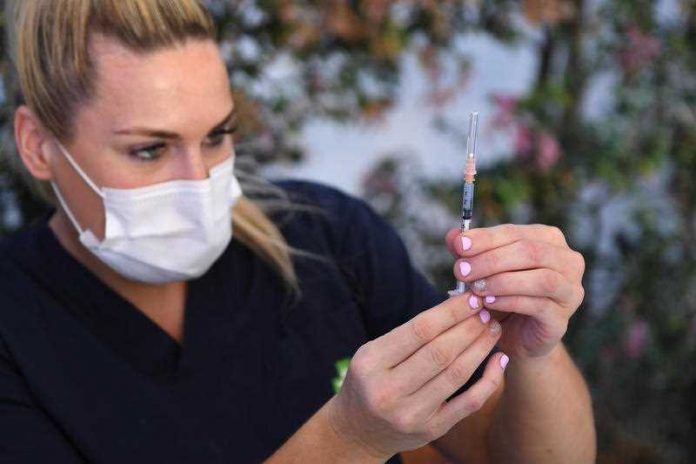Medical experts have called for COVID-19 booster shots to be brought forward even further in the wake of rising Omicron variant cases.
While medical regulators have already reduced the waiting time to receive the third dose of a COVID-19 vaccine from six months to five, some have recommended it be reduced again.
The calls come after the arrival of the Omicron variant led to an explosion of new virus cases in eastern states, particularly in NSW.
University of New South Wales epidemiologist Mary-Louise McLaws said the boosters should be brought to a four-month interval.
“We need to get you (in for boosters) before your immune system starts waning when you have a high level of a variant in the community, so that you supercharge your immune system,” Professor McLaws told the ABC.
“We need to decrease the time for boosters to about four months, no longer.”
Australian Medical Association president Omar Khorshid also warned the booster program was falling behind, saying the country risked repeating mistakes made during the early stages of the initial vaccine rollout if the boosters weren’t brought forward.
“The latest strain of COVID-19, Omicron, poses a significant potential risk to the population and appears much more transmissible than previous strains, so we have to pick up the pace to protect the community,” Dr Khorshid said.
“By the end of this month, close to four million people will be eligible for the booster. However, in the last week Australia has only been able to administer just over 210,000 booster doses.”
Since the start of the booster rollout, 868,122 third doses have been administered.
Help keep independent and fair Sunshine Coast news coming by subscribing to our free daily news feed. All it requires is your name and email. See SUBSCRIBE at the top of this article
The emergence of the Omicron variant has led to a surge in cases in several states, with NSW reaching a post-lockdown high of 1360 daily infections.
Despite the arrival of Omicron, the federal government has scrapped its travel ban on eight southern African nations.
The ban was introduced in November after the variant was discovered.
As of Wednesday, there were 109 confirmed cases of Omicron in Australia with 13,000 detected globally.
Vaccine may be weaker
Meanwhile World Health Organisation says preliminary evidence indicates COVID-19 vaccines may be less effective against infection and transmission linked to the Omicron variant.
The WHO said more data was needed to better understand the extent to which Omicron may evade immunity derived from either vaccines or previous infection.
“As a result of this, the overall risk related to the new variant of concern Omicron remains very high,” it said.
For the first time since the dominant Delta variant was classified as a variant of concern in April, the percentage of Delta sequences registered on the GISAID global science database has declined this week compared with other variants of concern, it said.
This needs to be interpreted with caution as countries may perform targeted sequencing for Omicron and therefore upload fewer sequences on all other variants, including Delta, it said.
The Delta variant is still dominant, however, accounting for 99.2 per cent of the almost 880,000 sequences uploaded to GISAID with specimens collected in the last 60 days.
But the trend is declining in the proportion of Alpha, Beta and Gamma, and with the emergence of Omicron variant.
Out of the total, some 3755 – or 0.4 per cent – were Omicron and the other three variants of concern together numbered 401, less than 0.1 per cent each.





